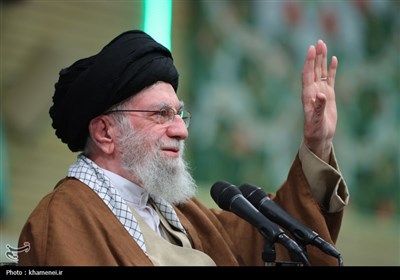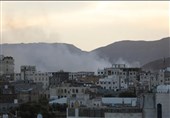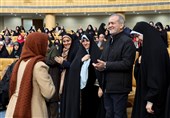NATO Ready to Defend Turkey, Send Troops If Needed: Chief
TEHRAN (Tasnim) – NATO is ready to send troops to Turkey to defend its ally against threats on its southern flank, the head of the US-led alliance said on Thursday after violations of Turkish airspace by Russia jets conducting air strikes in Syria.
"NATO is ready and able to defend all allies, including Turkey against any threats," Secretary General of NATO Jens Stoltenberg told reporters before a meeting of NATO defense ministers in Brussels that will be dominated by the Syria crisis, Reuters reported.
"NATO has already responded by increasing our capacity, our ability, our preparedness to deploy forces including to the south, including in Turkey," he said, claiming that Russia's air and cruise missile strikes were "reasons for concern".
His remarks came as the Russian Defense Ministry had said one of its SU-30 warplane had entered Turkish air space along the border with Syria "for a few seconds" on Saturday, a mistake caused by bad weather. NATO says a Russian plane also entered Turkish air space on Sunday, an incident Russia says it is looking into.
However, NATO on Tuesday rejected Moscow's explanation that its warplanes had violated alliance member Turkey's air space by mistake and said Russia was sending more ground troops to Syria and building up its naval presence.
With Russia extending its airstrikes to include the ancient Syrian city of Palmyra, Turkish President Tayyip Erdogan said he was losing patience with Russian violations of his country's air space.
"An attack on Turkey means an attack on NATO," Erdogan warned at a Brussels news conference.
Russia has spent a week delivering airstrikes at terrorist forces in Syria, conducting over 120 combat sorties. Now the Navy is joining Russia’s Air Force in the operation.
In the most recent development, four Russian Navy warships fired a total of 26 missiles at the positions of the terrorist group ISIL in Syria, Russia’s Defense Minister Sergey Shoigu announced.
The missile attacks came from Russia’s fleet in the Caspian Sea, which borders Russia, Iran and three other littoral countries. The precision weapons hit all intended targets. The attacks apparently required cooperation from Iran and Iraq, as the missiles had to travel through their airspace to reach Syria.







